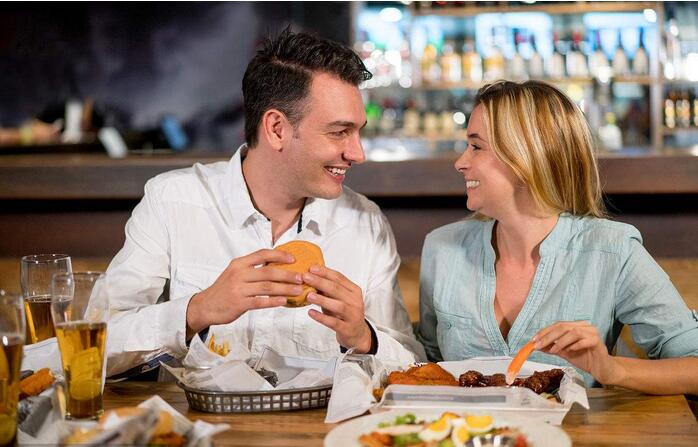(单词翻译:单击)
The researchers believe the answer’s in the brain. Before you eat a bite, there’s a brain phase of digestive secretion.
研究人员认为答案在于大脑。当人们吃食物时,大脑中有一个消化分泌阶段。
Seeing, smelling, or just anticipating a good meal prompts the brain to send messages to glands along the digestive tract.
视觉,嗅觉,或者仅仅是对美食的期待,会促使大脑传递信号到消化道的腺体。

“Hey you guys! Yummy morsels coming!” These happy thoughts prompt secretion of saliva, gastric juices and enzymes for digestion.
“嗨,伙计们,美食快来啦!”这些愉悦的思想促进唾液,胃液和消化酶的分泌来帮助消化。
In particular, acidic gastric juices are key to iron absorption. Without the acid, the body absorbs little iron.
需要专门强调的是,酸性的胃液是铁吸收的关键物质。没有酸,机体几乎不能吸收铁。
When you’re relaxed and enjoying your food, your brain primes your gut to absorb the most nutrients.
但人们放松下来享用食物时,大脑会促使肠道最大程度地吸收营养。
So there’s scientific evidence for something we’ve suspected all along-an appealing, leisurely meal is a lot more nutritious than unappetizing grub!
因此,该实验结果也成了支持我们猜想的论据,即一餐令人食指大动,逍遥自在的美食远比毫无吸引力的食物有营养。
译文为可可英语翻译,未经授权请勿转载!


